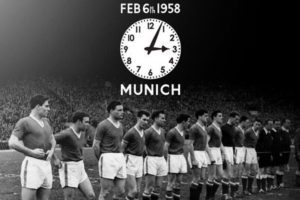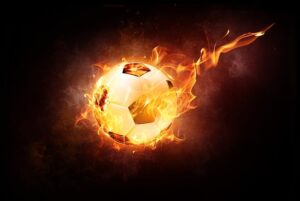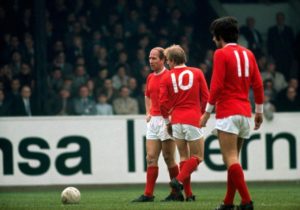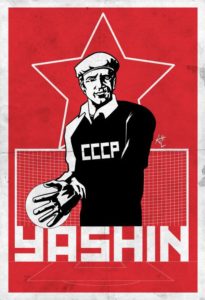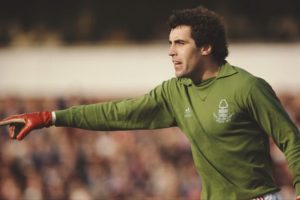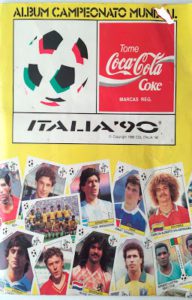Yugoslavia, McDonald's and football that was
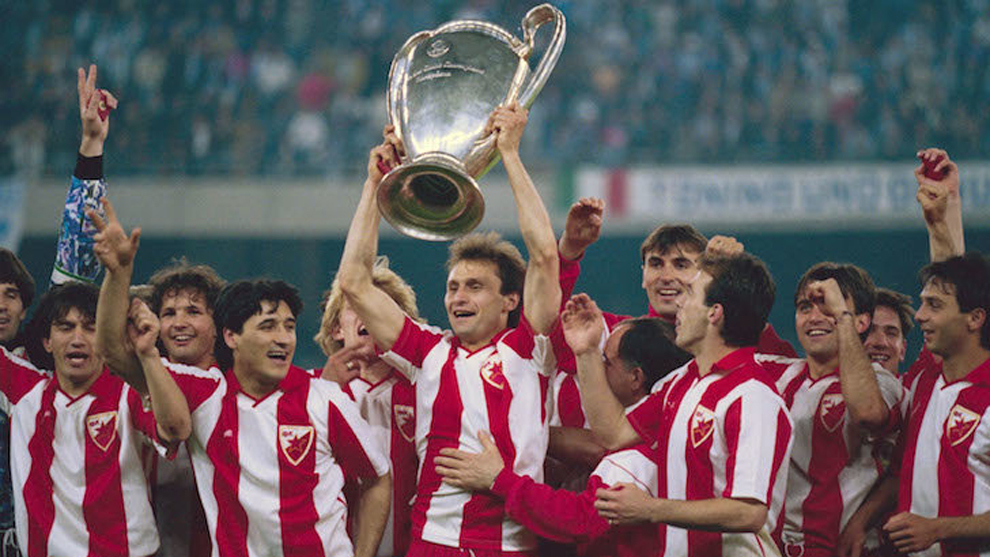
Last update April 10, 2020 by Javier Argudo
The name of Thomas Friedman does not arouse any special feeling among football fans. It was one of the original members of the Old Etonians, nor he was part of that template Manchester United suffered the tragic plane crash. In fact, considering it is an American journalist, surely not know or what is offside. So, What's relevant good for Thomas Friedman poked my head into this article on football noventero? Although it seems surreal, Friedman, McDonald’s, Yugoslavia and the football (Let's put capitalized, why not?) keep some relationship, and as confinement produces the same monsters that "sleep of reason", I plan to put into play this delicate series of terms. No one despair, Soccer is life, and how life is, relates to infinite aspects of society. A couple of ideas to understand what Friedman paints in all this and what happened in Yugoslavia in the last decade of the twentieth century and return to football.
The Minnesota native journalist, where a football team was not founded until ten years ago, He published in 1996 a small opinion column entitled "The Theory of golden arches". The pages of the New York Times picked up ideas Friedman, who had in mind the restaurant chain McDonald’s when he spoke of "golden arches". This theory was based on the idea that had never occurred (nor would) a war between two countries that had within its borders one of these fast food. Obviously, Friedman clung to the pacifying power of the Happy meal. Starting from the conception of a world that until the end of the decade of the 90 He had been divided into two blocks ideological, It was logical that two countries that would have stopped entering the McDonald's clown, fully two capitalist countries, did not have an armed conflict. But Friedman was wrong. In the year 1999 NATO bombed Yugoslavia in the context of the war in Kosovo, McDonald's in Belgrade (Curiosities of life) It was looted and destroyed by belgradeses and the Golden Arches Theory crumbled, although it is true that Friedman tried to refloat the claim that the attack was the work of NATO and not a particular country. Definitely, Which can not be consoled, it is because you do not want.
Not even the McDonald’s could prevent the bombing of Belgrade. It is true that Yugoslavia was immersed in a self-destructive maelstrom since Croatia declared independence in June 1991, but the bombs falling on the Yugoslav capital accounted for the final realization that life would never be the same in the Balkans. The truth is that the Marshal Tito, Head of State Yugoslavia since the end of World War II until his death in 1980, He had managed to stabilize the country, making it one of the most prosperous in the communist bloc (although it is true Titus reached break Stalin and Yugoslav socialism followed a different line to the marked by USSR). Tito's personality, and of course the tight control of society, got that conflicts surfaced in Yugoslavia nationalists, ensuring the prosperity of a country, from the perspective of football, It was the envy of many.
The Yugoslav league was a real spectacle. teams like Partizan, Red Star, Hajduk Split, Dinamo de Zagreb O Velez Mostar They crossed Yugoslavia every weekend, nationalist rivalries aside and struggling to conquer the footballing glory. However, the truly powerful teams were Serbs, good example of this being the fact that 30 leagues disputed between 1945 Y 1991 They were won by Partizan and Red Star. In fact, the last years of the Yugoslav league was dominated by the second, who also won four of the last five championships, conquered the European Cup 1991 after a penalty shootout agony of against Olympique Marseille.
If one walks through Belgrade and is fortunate to spend about the "little Maracana”, name that is popularly known to house the Red Star, You can understand how this team came to win the Champions League. and about eight years ago I was in Belgrade; I was fascinated by the city, people surprised me (for good) and food drove me nuts. When I rented the apartment, at a time when Airbnb did not exist and where they did not have mobile internet, he was convinced he had rented an apartment in downtown Belgrade. The ad said it was close to the Tito Palace, so I believe, It should be close to the center. As I got off the plane I asked as best they could and took a bus to take me as close to the street where I expected the home.
After about an hour on the bus watching me get away from the center, I arrived at the stop that the driver growled at me.. Stop calling what is quite optimistic, It was a backless bench and an iron stick that had been ripped from the ground but remained attached to the cement mazacote. When I got off, I was there home. Yugoslavian smile from ear to ear, gold chain and an undeniably English Balkan, but I never forget that phrase: “Hello my Spanish friend! You chose well, here your appartment, there Red Star stadium”. He was in the ass Belgrade, That was undeniable, Rajko Mitic but had a side house. Some white and red exterior guarding years and years of history and that 1975 They had witnessed how more than 100.000 People attending a semifinal Recopa against Ferencvaros. At that stage the Red Star it had established itself as the strongest team in Yugoslavia and had been outperforming phase after phase until it won the European Cup on 29 May 1991.
But less than a month after that tremendous win situation changed forever Yugoslavia. After Tito's death had revived nationalist sentiments that took years off; and enough little more than a decade for the whole country began to plunge into a bloodbath. The 25 June 1991 It came the unilateral declaration of independence of Croatia, although it had no effect until October. Serbian minorities in Croatia proclaimed itself an autonomous republic within the Croatian territory, Yugoslav Army and was sent to confront the newly created Croatian armed forces. Croatian independence declaration did not occur in the overnight, it was a gradual process that sooner or later would reach its zenith, if not, just ask those attending the Dinamo Zagreb - Red Star who he played 13 May 1990.
A few days before the match, the Croatian Democratic Union (in favor of independence) He had won the election, which led to a further deepening of the independence process. Political and social tension was living on the streets, and as, in football. That day the Bad Blue Boys of the Dynamo Zagreb They were against the delije of the Red Star, at that time led by Arkan, who eventually he was a Serb military leader accused of war crimes. political feelings, and racial nationalists were taken from the street to the stadium and the players themselves state. After a standoff in the stands that led to Serbian police crackdown on Croatian supporters, Zvonimir Boban, future star of the Milan at that time militated in the ranks of Dinamo Zagreb, a policeman watched an amateur Croatian apaleaba. “It was an injustice. A police our fans did not treat them with the same restraint. Before and during the match in Zagreb, the ultras of Red Star began to destroy everything. Police stood, and when they started to defend our, It was then that itself took steps. They were organized for horrorizarles”. Without thinking twice, he ran towards the police, handing him one of the most famous kicks in the history of football. Not famous from the tipia and fibula of a global crack, but by personifying anger and tension contained by the various peoples of Yugoslavia who refused to give in to pressure nationalists.
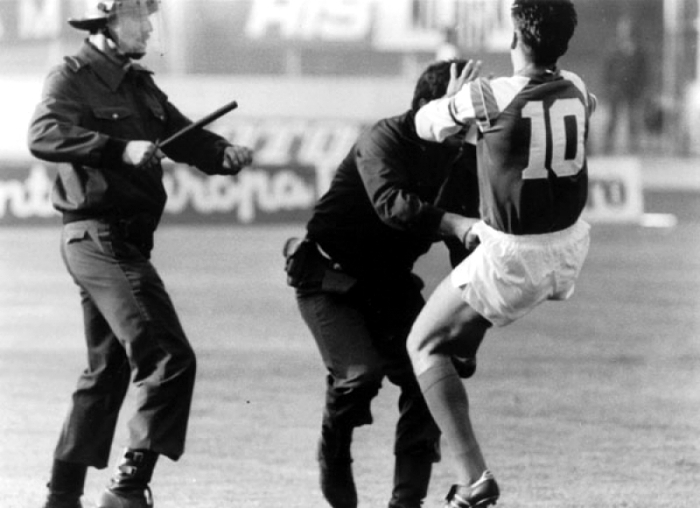
The war continued and the Yugoslav League lost all its splendor. Not only the fans of Red Star went from the joy of the European title to the decomposition of the template and consequences of war, but lots of the Yugoslavian stars put land of through sooner rather than later. Government Stosic, who gave soccer pleasant evenings bética parish headed towards Mallorca after winning the European Cup with Red Star; Davor Suker left Dinamo Zagreb to anchor in Sevilla; Zvonomir Boban ceased to be partner at Dynamo Suker to address the Bari year that an after kick that changed the Yugoslav football; Robert Jarni, famous Croat who is fondly remembered in the Villamarín also headed for Bari; Robert Prosinecki, not without bureaucratic setbacks, He was transferred to Real Madrid; Y meho Kodro, Bosnian legendary player who left his mark in the Basque Country, Velez Mostar left to anchor in the Royal Society.
There were many more players and teams affected by the Yugoslav Wars, but it would be impossible to pick them up here. The whole country suffered the hardships of a confrontation that lasted until the end of the century and left recorded in memory atrocious events like the massacre of Srebrenica. There is controversy over who pronounced that of "football is the most important thing of the least important things". It is not known for sure if he was Sacchi O Valdano, but the truth is that the phrase does not lack an iota of reason. Yugoslavia it destroyed, Europe again witnessed genocide and wounds were created that could heal or three lives (So far the important). But the Yugoslav football was also demolished (Here begins the least important). One marvels at imagining how it could be today a Yugoslav combined. Perhaps he would have raised with a World Cup or European Championship and countries such as Spain or France would have a less bulky palmares. But after a decade of blood and fire, the country and its football did not return to the same. The Red Star fans still pilgrimage Sunday after Sunday his little Maracana, but when many of them get off the bus at that stop, today reduced to a ironwood and backless bench, surely they create another past was better. Think the Red star not again bring a European Cup Belgrade, and Friedman and his Mcdonald's, from the tranquility that gives the New York Times, they could not save the old Yugoslavia football.

